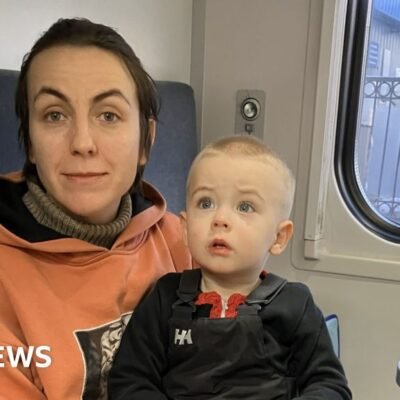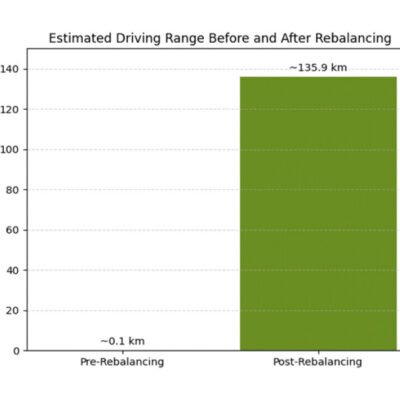verity: Matt, you were born in Penistone in Yorkshire, England, which is down the hill from Silkestone, where I come from. I think that being from the Barnsley area has impacted me in terms of my politics. Can you talk about if and how where you have grown up has had an influence on how you make theatre?
Matt: Penistone is an interesting place because it is a farming area, but also you are surrounded by people who are political and people who contradict traditional narratives about what it means to be in an ex-mining community. But what has more meaning for me is that my family were artistic but did not have the same opportunities as me to pursue it. So now in the work that LUNG does, we believe we have a responsibility and a duty to find people who may not feel that the arts is for them—not just because of their class but because of other characteristics too.
verity: LUNG’s focus on verbatim campaign theatre was not so straightforward, was it?
Matt: No. We formed at the University of Sheffield as an initial response to arts cuts in the area (and nationally) and started going into schools to run workshops on Lord of the Flies. The workshops were a work in progress, but it felt like the things the young people were saying in them were more interesting than the things being put on stage. Then our producer Gemma Wilson said, “There’s this thing called verbatim theatre,” and I said, “What’s that?”
At the time we were aware that the anniversary of the fire at Bradford City Football Club was approaching, and Gemma was aware there was a story to be told about this, but people didn’t necessarily want to speak about it. This is how The 56 came into being, commemorating the 56 fans who died and using verbatim theatre to do it.
It was a formative show for us for different reasons. There was a Bradford City Fans Forum that was shut down because people were saying, “how dare you tell this story?”—even though Gemma was born in Bradford and her family were regulars at City games and knew some of the people who were affected by the tragedy. There were death threats and nasty comments aimed at us. This made us realize the power this kind of work has. We learned a valuable lesson: there is no one way to make a verbatim project that is community driven. In the end it was a woven tapestry of sixty voices that was embedded in the community.
We believe that verbatim is not a tool to present one side and then the other and then you make up your own mind as an audience member—that is creating an illusion of balance. We want to platform the voices that aren’t being heard and create a campaign that runs alongside it.
verity: The campaigning did not begin until E15, did it? How did this change your relationship with the audience, given that the audience coming to see E15 probably already knew about the campaign?
Matt: E15 was already a movement and already had a call to sign the petition and join the campaign. And there was a change in us; we became more overt in our intention about why we were making this piece of work and how. We believe that verbatim is not a tool to present one side and then the other and then you make up your own mind as an audience member—that is creating an illusion of balance. We want to platform the voices that aren’t being heard and create a campaign that runs alongside it.
verity: So, are you saying that you do have a political standpoint before you start a show, or does that standpoint and the campaign come out of your research?
Matt: There are three existential questions that we ask ourselves before we embark on a project: why this play, why now, and why us? Before we begin, we always have a hunch as well. So with Who Cares we already knew that young carers in the United Kingdom needed more support; Chilcot was about how devastating the war with Iraq was; with Woodhill the question was, why are all these young men dying in prison?
In terms of the campaign, it evolves when you pick at the scab and realize how deep something goes. More and more we are really shifting into how we can serve the vision of the groups we are working with and what they want to campaign for.
verity: Helen, join us. We are talking about political stances and campaigns.
Helen Monks: I finally got a connection!
One of the gifts of what we do is that the show is one element and the campaign is another that continues and carries on beyond the show. We have always aimed for campaigns to be part of and generated by the shows, but also able to stand independently.
We toured Who Cares after we had done Trojan Horse, and so we were able to talk to the same teachers and governors we talking to about Prevent about young carers as well. It is definitely an aim of the company to connect people more. We keep in touch with everyone, and it makes sense that those people from different community groups and activists are aware of each other.
verity: Helen, you are from Birmingham and went to school there. I’ve already talked to Matt about being from Yorkshire and how that influences him. Can you say how it influences you in terms of what you want to make a show about?
Helen: I think that there are two approaches we employ. One is where we know a specific story, like Trojan Horse, which took place in Birmingham Schools and their communities and which was already in the media, and we examine it with a worm’s eye view to see if it speaks to a wider issue. The second approach is that we want to make a show that is about a wider issue with a bird’s eye view, like the housing crisis, and then explore who has the life experience to inform and work with us on it. We aim for all our verbatim pieces now to reflect something live, active, and continuing to have impact.
The idea that politics is twinned with hope runs through our projects.
verity: In two of your shows, the team had strong connections to the communities and issues they were about –you, Helen, with Trojan Horse and Gemma Wilson with the Bradford City Fire. Would you say you are closing the gap between theatremakers and the work on stage?
Matt: It depends what you mean by “connected.” You sometimes don’t realize you are connected until you investigate it yourself. Woodhill is all about grief and losing someone, so a pop psychologist might say this is Matt’s play about Matt’s dead sister (she died before I was born) and the impact that had on my parents. Or you could say Who Cares is about me having the privilege of caring for my grandparents when I was growing up. I think you find pieces of yourselves naturally in the work anyway. There are so many overlaps you don’t see.
Helen: We don’t go, “What are the big issues of the day?” Instead, it is a really personal and emotional response to something, and the plays are an extension of our response. Just on a personal level, every project we do totally changes my life through the people we meet and work with.
verity: Yeh. And the personal is political as well, isn’t it? Artists I talk to say you should not mix art and politics, but you are a very political theatre. It is at the heart of what you do…
Helen: The art is one part. It shows the reason, and then the campaign shows the hope. The process of meeting people who are campaigning for social justice is a deeply political act. The United Kingdom gets very easily depressed about the state of the nation, but we would not be talking about the campaigns or the shows if we didn’t believe that there was hope for change. The idea that politics is twinned with hope runs through our projects.
Matt: “England is perhaps the only great country whose intellectuals are ashamed of their own nationality.” I love this quote from George Orwell. I think you have a responsibility as a British (and English) person in theatre to be political, because our country has a lot to be ashamed of… Otherwise, you are in some ways complicit in the horror show of the last thousand years.
verity: Have you seen positive change from your campaigns?
Matt: With Who Cares over 200 young carers were identified and signposted to support from their local young carers services. During COVID we orchestrated Digi Fund, a project to support young carers facing digital poverty. More than thirty of them received laptops and phones, things for schoolwork. With Who Cares, one of the young people whose stories are included in the play decided he wanted to study political science at university as a direct result of it. The impact of the young carers speaking their truth in that show is still rippling.
Change is a long game, and you don’t always get credited for that change when it happens.
verity: You’ve performed Who Cares and Woodhill at the Houses of Parliament. Have you seen any impact from this?
Matt: Barbara Keeley MP invited us for Who Cares, and Lord Toby Harris invited us for Woodhill.
In terms of Who Cares it was a mistake that we did not go with an ask, and so we’re not sure about the political impact in terms of policy. The profound thing—and we saw this with Who Cares—is that when change happens it is far more subtle than a change in policy. For policy you need consultants and the right people in the room and change makers and parliamentarians to go on that journey with you as well. Sometimes you need to force their hand.
But with Woodhill, we are actually meeting the prisons minister with the families, and we have our list of demands. We have a clear timeframe of what we want to achieve in terms of our aims and ambitions. We are getting smarter as we get older. Change is a long game, and you don’t always get credited for that change when it happens.





